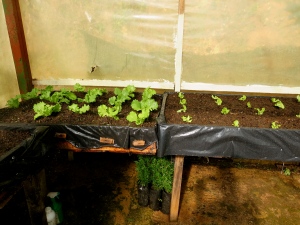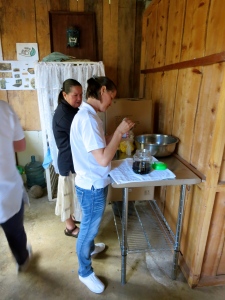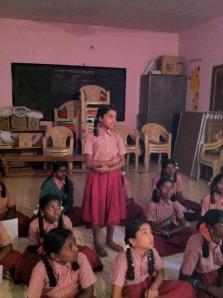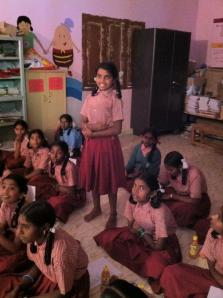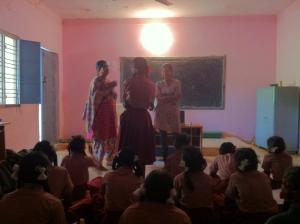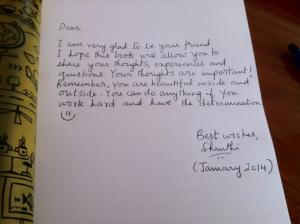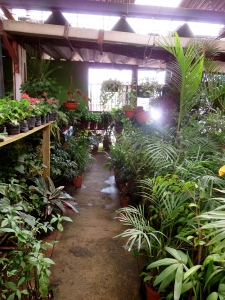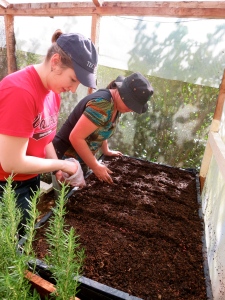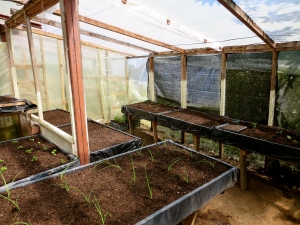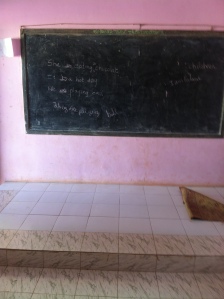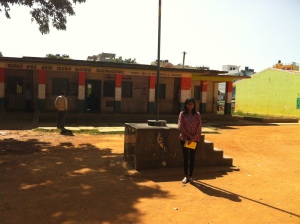Hola y bienvenidos! After a day of travel last Sunday, I have found my way back to my Costa Rican home.
First, an introduction! I am Justine Decker, a senior geography major and biology minor from Waukesha, Wisconsin. Last spring I studied abroad with ACM’s program in Costa Rica, and spent two months in a rural zone working on an independent research project at a local coffee cooperative. I ended up in Llano Bonito, a rural mountain town south of San José, surrounded by coffee farms on all sides. During my time in Llano I was lucky enough to be taken in by a host family native to the zone, which has adopted me in as one of their own! The whole community welcomed me during the two months I spent with them and were a huge help in the success of my project during study abroad. Their hospitality and kindness was more than I had ever anticipated, and when it came time for me to leave, I knew I’d be back at some point.
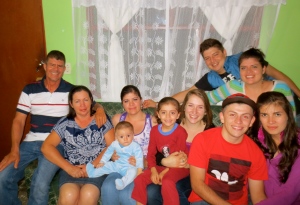
Familia Durán Corella

A=Llano Bonito, Costa Rica
When I came across the opportunity for a J-term Live It project, I immediately thought of Llano Bonito. If there was a way for me to contribute to my adopted community, I wanted to do it! I immediately sent a message to my host sister, a 24-year old art teacher at the local high school, explaining the possibility of a project and asking for her advice. What sort of project would be feasible given the time/budget constraints, and what would the community like to see? She responded with total excitement and several ideas. Together, and with advice from my host mom, we decided on the project now underway.

Los Santos, CR
Here’s the run-down: For my Live It! project I have returned to Llano Bonito to collaborate with an organization in the community, called PROAL Holo-Salud, to expand their initiative of growing organic produce and medicinal plants to be used by the community. Herbal medicine and home remedies are an important part of Costa Rican culture and are depended upon and utilized by many people, especially rural populations. PROAL focuses on improving the health of the community using a holistic approach, addressing many aspects of life (deemed ‘holo-salud’ in Spanish). The organization is made up of a group of local women who define the organization as: “an association that promotes a new paradigm of life based on ethics that involve respect, responsibility and solidarity in social relationships with nature.” They focus much effort on medicinal plants and natural products. More recently, PROAL has begun to establish gardens and greenhouse space to grow organic produce. My host mom is a member of the organization, and I visited often during my two months in Llano.

PROAL

PROAL
Llano Bonito is fairly isolated; it is located about one hour by bus, 30 minutes by car, from the nearest city, San Pablo, which is where residents must conduct much of their business, including banking and shopping. Agriculture in the area is dedicated to the production of two cash crops, coffee and avocados; few other vegetables are grown. Therefore, in order for residents to purchase vegetables and greens, they must travel a significant distance. Additionally, produce available at markets in the zone is often grown with the use of many harsh chemicals.
For this project, I will work with PROAL to establish organic vegetable gardens from which they will sell produce to convenience stores (‘pulperias’) in town, as well as directly to residents, providing accessible, safe, healthy food to local residents. To do this, we are going to expand the greenhouse that already exists and plant vegetables in unplanted beds. I will also repair portions of the greenhouse that have been damaged by wind. I plan to establish additional beds outside of the greenhouse, on the property owned by PROAL, where I will plant a variety of medicinal plants that will be used by the women of PROAL to treat local residents.

PROAL’s Greenhouse
On our first day working, Kari (my host sister), Olga (my host mom) and I visited PROAL to take a look at the status of the greenhouse and grounds. As you can see from the photos, the greenhouse beds were in rough shape. The next day, we spent time cleaning up the beds, removing dead plants, emptying beds that need to be repaired and turning the soil in others. Things are looking much better already!

Greenhouse: Day 1

Greenhouse: Day 1

Soil -en las manos de Kari

Greenhouse: Day 1

Greenhouse: Day 1

Kari turning soil

Cleaned beds

Cleaned beds

Emptying beds

Mami Olga & I emptying beds
A side note: the coffee harvest is under way in the area! When I was here last the plants were in full bloom, and now the fruit is ripe and ready to be harvested. Bushes full of red berries are all over town. Coffee farms in this area are located on extremely steep slopes and the fruit must be harvested by hand. Families and migrant workers cover the mountainsides during this time of year, harvesting from the farms—very difficult work. Something to remember next time you are enjoying a cup of coffee!

Coffee-covered mountainsides

Coffee ready for harvest
Happy New Year to all! Hasta la próxima vez—Until next time!
-Justine










